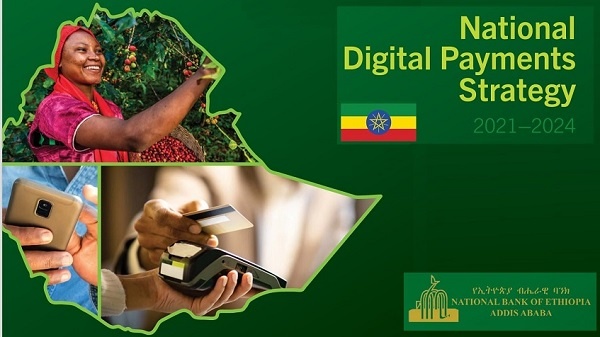
The National Digital Payments program can address financial and digital inclusion and can contribute to reducing poverty among all population demographics
ADDIS ABABA (UNCDF) – The United Nations Capital Development Fund (UNCDF) in Ethiopia has launched a program to enhance financial resilience of Ethiopians, especially women and youth, using digital finance. This program is a joint-initiative between the European Union (EU), the Organization of African, Caribbean and Pacific States (OACPS) and UNCDF with the aim to unlock the potential of digital finance to benefit women, youth and entrepreneurs in three regions.
The program, called National Digital Payments Strategy, comes as Ethiopia, like other countries, is adapting to the impact of the COVID-19 pandemic and aims to leverage digital finance to spearhead financial inclusion and increase access to other digital services, thus improving the lives of people in Ethiopia.
In early 2021, the €14.5 million joint-initiative was launched to grow and develop the digital finance industry in target countries in Africa, the Caribbean and the Pacific, with the goal of reaching a total of 600,000 women and youth. In Ethiopia, UNCDF will work with the National Bank of Ethiopia (NBE), Ministry of Finance, Ministry of Innovation and Technology, private sector players and others to support government efforts in expanding the digital finance ecosystem, growing the agent network to increase usage of and access to services, improving financial and digital literacy and developing innovative products and services that meet people’s needs in particular women and youth. The joint-initiative is in line with Ethiopia’s Ten-Year Perspective Plan and would focus on priority sectors that would contribute to achieving the Sustainable Development Goals (SDGs).
When speaking of the new joint initiative, the implementing partners shared the following:
Sanne Willems (European Union): “The EU and its Member States (Team Europe) have prioritized to support Ethiopia’s digital transformation through the new Team Europe Initiative. Among e-services, digital infrastructure and skills building, we strongly believe that support to digital financial services and more specifically women’s financial inclusion, can enable women to participate in the labor force, control assets, establish and access funding to grow formal businesses and make their own economic decisions.”
Escipión J. Oliveira Gomez (OACPS): “The OACPS is proud to join forces with the European Union and the UNCDF in this initiative, executed within the third pillar, Financial Inclusion, of the Joint ACP-EU Private Sector Development Strategy. This specific program shall contribute to improve the livelihoods of Ethiopian entrepreneurs by strengthening the competitiveness of the country’s MSME network.”
Dr. Eyob Tesfaye (UNCDF): “In this era of economic development, digital transformation plays a key role in low and middle-income countries through its impact on diversifying their economies, creating new jobs, transforming agriculture, improving health, and education, and addressing inequality. The pace and intensity of digital transformation, however, must ensure that people are at the center of the digital future – not the technology. This requires equipping people, particularly the youth, women and disadvantaged groups to benefit from opportunities, while also protecting them from the potential harm of the digital age.”
Digital financial services continue to be a critical vehicle through which underserved populations can access relevant financial services and can receive digital skills that enable them to increase their participation in an economy that is increasingly becoming more digitalized. With a financial inclusion rate of 35 percent in Ethiopia in 2017, the National Digital Payments project can address financial and digital inclusion and can contribute to reducing poverty among all population demographics.
Source: UNCDF
